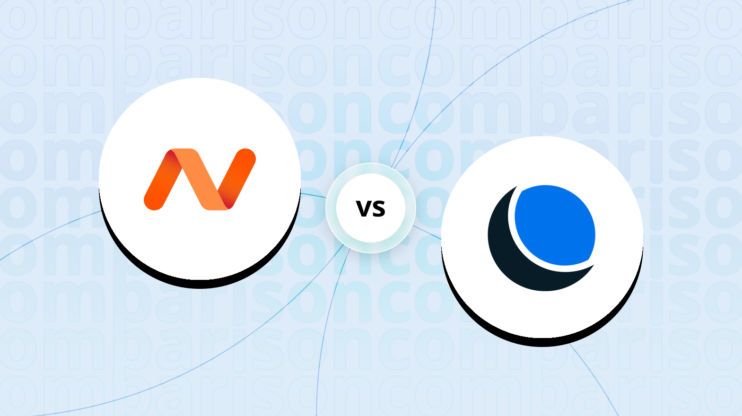Hostgator vs Hostpapa: Final verdict
Final verdict
Considering HostGator versus HostPapa, HostPapa offers a slightly superior overall package with enhanced features and performance.
HostPapa (Overall grade: 8.6) provides a wealth of features that make it a solid choice for many users, particularly those focused on performance and reliability. It excels in areas such as uptime performance, fast load speeds, and WordPress optimization, thanks to NVMe storage and its Cloudflare Enterprise CDN integration. HostPapa includes unlimited email addresses and SSD storage, a free Wildcard SSL certificate, and automated backup services at no extra cost, making it an excellent value. The added perks like a 30-minute training session and a premium staging environment for WordPress users enhance its appeal. However, the complexity of the Plesk interface may require a steeper learning curve.
-
HostGator (Overall grade: 8.0)
offers affordable and user-friendly hosting services that cater well to beginners and budget-conscious users. It provides a comprehensive range of security features, reliable uptime, and free SSL certificates, making it suitable for small-scale or low-traffic websites. HostGator’s solid customer support through various channels, including live chat and an extensive knowledge base, is notable. However, it falls short in some areas, such as occasional performance issues, slow server speeds, aggressive upselling, and higher renewal prices. The cPanel interface is intuitive, but some users may find the technical support responsiveness and server performance inconsistent.
 Overall grade:8.0 |
 Overall grade:8.6 |
|
|---|---|---|
| Uptime and Availability | 7.6 | 8.5 |
| Hosting Performance | 7.7 | 8.6 |
| Hosting Security | 8.6 | 8.6 |
| Price | 7.4 | 8.6 |
| Hosting Features | 7.5 | 8.5 |
| Ease Of Setup | 8.7 | 8.7 |
| User Management | 7.8 | 8.1 |
| Customer Support | 8.6 | 8.8 |
| User feedback | 3.6/5 | 4.2/5 |
Hosting types offered
Both platforms provide a variety of hosting types, each designed to meet the different needs of users.
 |
 |
|
|---|---|---|
| Shared hosting | ||
| Cloud hosting | ||
| WordPress hosting | ||
| Ecommerce hosting | ||
| VPS hosting | ||
| Dedicated hosting |
Although both offer a variety of hosting plans tailored to different needs, in
certain cases, one platform may prove to be more suitable.
Detailed comparison
Uptime and availability
Evaluates the average uptime statistics, uptime guarantee and overall availability of the hosting
provider
Score Components:
- Uptime percentage (30%): evaluates the uptime statistics in given period of time
- Uptime guarantee (20%): Assesses if the platform offers an uptime guarantee and
whether the actual uptime matches the promised guarantee. - General performance (25%): Evaluates how fast is the average response time and overall
it’s stability. - Responsiveness (10%): Adaptability to different devices and screen sizes.
- Availability (25%): Reflects the total downtime and number of outages.
 7.6
7.6
 8.5
8.5
🏆 Winner HostPapa: HostPapa stands out with its superior uptime performance and strong reliability.

HostGator guarantees 99.9% uptime, translating to around 8.76 hours of downtime annually. Their support is available 24/7/365, ensuring that any issues are addressed promptly. While this uptime is good, some competitors offer 99.99% uptime, reducing downtime to just 52.56 minutes per year. HostGator provides a reliable service but falls slightly short compared to top contenders in the market.
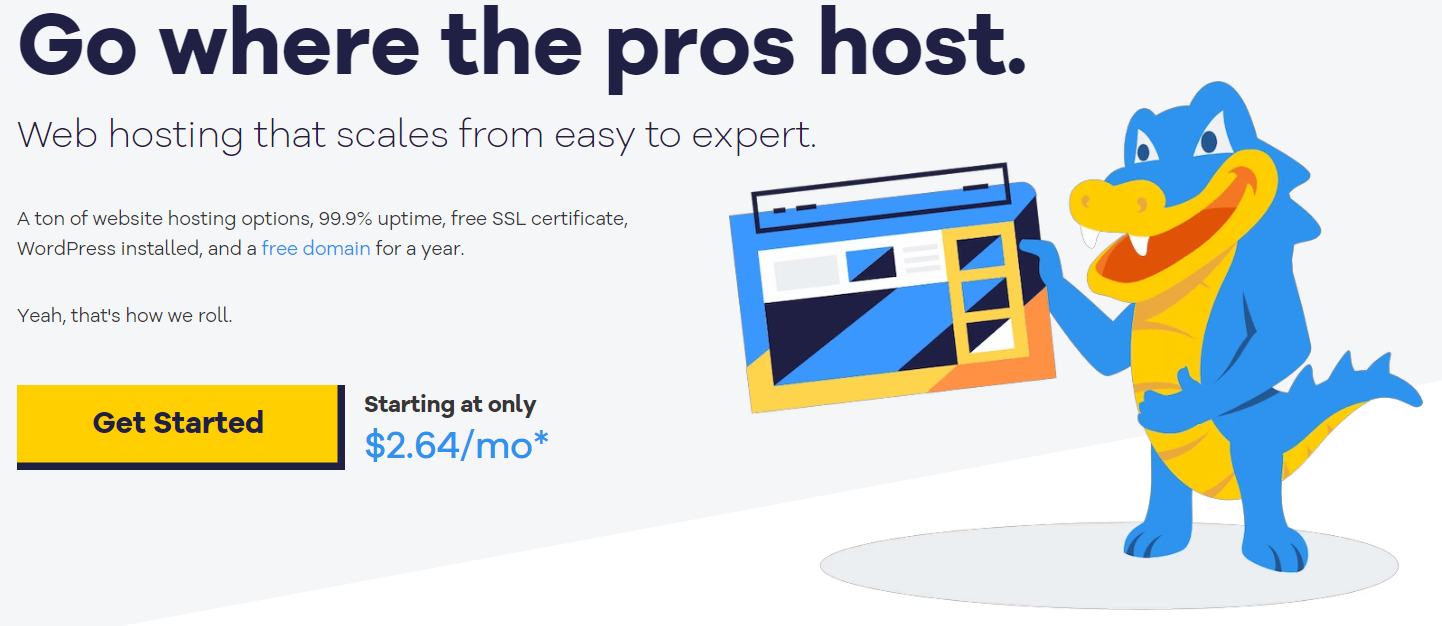
HostPapa impresses with a 99.93% uptime, corresponding to just 5 hours of downtime yearly in Montreal. They offer clear communication about maintenance and incidents via a status page and email notifications. Load times perform above average across various Canadian cities, and their service maintained 100% uptime over a monitored two-week period. HostPapa’s superior uptime and detailed transparency make it a top choice for reliable hosting.
Which one has better hosting performance?
Score Components:
- Hosting speed (30%): This includes SSD quality, Load times, PageSpeed score ranges,
additional information on website speed, built-in plugins for performance enhancement, available caching
methods, and CPU/RAM options - CDN (20%): Considers whether CDN is available or not, whether it’s free or paid, and
the quality of the CDN service - Available data centers (30%): Evaluates the number of data centers and their locations
globally. - Scalibility (20%): Looks at whether elastic scaling is available, the process required
to scale (manual upgrade vs. automatic scaling), the presence of dedicated servers, and the costs
associated with scaling.
 7.7
7.7
 8.6
8.6
🏆 Winner: HostPapa: Offers high performance and security features suitable for small businesses and WordPress websites.
HostPapa and HostGator both aim to provide reliable hosting services, but their features vary. HostPapa shines with its servers optimized for fast loading speeds and NVMe storage, enhancing website responsiveness. HostGator, while also promising high performance, relies on traditional SSDs. HostPapa’s integration of Cloudflare Enterprise CDN ensures rapid content delivery from over 250 locations, which is a step above HostGator’s Cloudflare implementation. Both providers offer unmetered bandwidth, but HostPapa’s utilization of NVMe gives it a speed advantage. In terms of data centers, HostPapa has global edge hosting locations, providing a wider reach compared to HostGator.
Website speed
HostPapa takes the lead with its focus on performance metrics such as Time to First Byte (TTFB), First Input Delay (FID), and First Contentful Paint (FCP), all of which are significantly faster compared to traditional setups. Its NVMe storage and Cloudflare Enterprise CDN contribute to quicker load times. HostGator, while providing solid performance with its SSD storage and Cloudflare CDN, does not match the speed optimization of HostPapa. The difference is evident in the user experience, where faster loading helps retain visitors and improve search engine rankings.
Scalability
Both HostPapa and HostGator offer scalable options, but their approaches differ. HostGator provides scalable tools and plans designed to grow with your website, requiring plan upgrades as needed. Unfortunately, detailed information about elastic scaling for HostGator isn’t available. Conversely, HostPapa doesn’t specify if it utilizes elastic scaling either but does offer dedicated servers, which suggests room for significant growth. Pricing specifics for scaling on either platform aren’t provided, leaving that aspect somewhat unclear.
Which one has better security features?
and regulatory requirements
Score Components:
- Technical security measures (40%): This includes encryption, firewalls, DDoS
protection, secure configurations, server monitoring, access control and availability of security addons
(e.g Sitelock security). - Operational security measures (30%): Encompasses data privacy, backups and data
redundancy. - Compliance and certifications (20%): Adherence to legal and regulatory requirements
(e.g., GDPR, HIPAA) and possession of certifications (e.g., ISO 27001, SOC 2). - Business and reliability (10%): Factors in the provider’s reputation, uptime
guarantees, and customer support.
 8.6
8.6
 8.6
8.6
🏆 Winner HostGator: A comprehensive set of security features ensures that HostGator provides a secure and reliable hosting environment for its customers.
Both HostGator and HostPapa, have notable differences in their approaches to technical and operational
security, as well as in their compliance with regulations.
Technical security measures:
HostGator provides a range of SSL certificates including free SSL, Single Domain SSL, Wildcard SSL, and EV SSL, with protections up to $1.75M. HostPapa, on the other hand, offers GlobalSign SSL certificates with up to 256-bit encryption and automated installation. Both hostings support PHP version selection, with HostGator favoring PHP 8.2. For daily malware scans and removal, HostGator offers CodeGuard backups, while HostPapa provides Protection Power and SiteLock.
Operational security measures:
HostGator incorporates SiteLock Security and Cloudflare CDN for comprehensive protection including malware detection, DDoS protection, and faster page load speeds. HostPapa’s Protection Power suite offers WAF, DDoS protection, spam monitoring, and advanced threat detection but lacks HostGator’s emphasis on content speed optimization via CDN. Both hosts facilitate automated daily backups—HostGator through CodeGuard and HostPapa through their own back-up solutions—maintaining data security and operational consistency.
Compliance and certifications:
HostGator and HostPapa are both GDPR compliant, ensuring the protection of EU residents’ personal data. HostPapa also abides by PIPEDA regulations in Canada. For PCI compliance, HostGator supports server-level configurations for VPS and dedicated servers, while HostPapa provides broader support for maintaining a secure network and data perimeter. Neither host specifies compliance with HIPAA regulations.
 |
 |
|
|---|---|---|
SSL certificate |
Free SSL, Positive SSL, Single Domain SSL, Wildcard SSL, EV SSL |
GlobalSign SSL for single and wildcard domains |
Additional security features |
SiteLock Security, Cloudflare CDN, CodeGuard |
Protection Power, SiteLock, automated backups, CDN |
PHP versions |
PHP 8.2 |
Select PHP version |
GDPR compliance |
Yes |
Yes |
HIPAA compliance |
Not specified |
Not specified |
PCI compliance |
Server PCI compliance |
Certified PCI compliant eCommerce merchant |
Hosting features
Score Components:
- Domains (20%): Assesses the availability of a free domain, domain purchase options, and
pricing - Email (15%): Considers if the provider offers full email hosting, or is reselling
third-party service, and if the email is only transactional or not - Website builder (15%): Checks if website builder is available, and it’s user
friendliness and overall the level of customization allowed. - Staging environment (20%): Determines if a staging environment is available, allowing
for testing changes before going live. - FTP & SFTP accounts (10%): Evaluates if and how easily users can access FTP and
SFTP accounts - Git and SSH access (20%): Assess whether Git is integrated into the hosting service and
if SSH access is provided
 7.5
7.5
 8.5
8.5
🏆 Winner HostPapa: HostPapa offers a more comprehensive suite of features, making it a preferable choice for many users.
Both HostGator and HostPapa provide robust hosting solutions that cater to various user needs, but they differ significantly in certain areas. HostGator comes with a cPanel interface that many users find intuitive, along with support for Unix Shell Access and advanced programming and database features such as Rails, Python, and Perl. Users can choose from several plans ranging from shared to VPS and dedicated hosting, which includes full control and DDoS protection. HostGator also provides unmetered bandwidth and frequent promotional rates, which can be enticing for new customers. Additionally, HostGator offers a free domain for the first year with its WordPress hosting plans, making it an attractive option for beginners.
On the other hand, HostPapa excels in offering unlimited email addresses and SSD storage at no additional cost. It includes a free Wildcard SSL certificate for the first year and automated backup services, also free for the first year. HostPapa’s core WordPress features are extensive, including pre-installed Jetpack for enhanced site management and security. The inclusion of a 30-minute training session can be particularly beneficial for users new to website creation. The availability of a premium staging environment for WordPress makes it easier to test updates before going live. HostPapa’s 24/7 support via various mediums ensures users have multiple avenues to get help when needed.
 |
 |
|
|---|---|---|
Free Domain |
Yes, for the first year |
Yes |
Free SSL |
Yes |
Yes |
Email Hosting |
Yes |
Yes |
Website Builder |
Yes |
Yes |
Staging Environment |
No |
Yes |
FTP & SFTP Accounts |
Yes |
Yes |
Git and SSH Access |
Yes |
Yes |
Free Backup |
Yes, for the first year |
Yes, 1GB for the first year |
Money Back Guarantee |
Yes, 30 days |
Yes, 30 days |
a location.
As a result in rare cases the features mentioned here can differ from the ones you see on their websites.
Both providers support a range of users from beginners to experts with user-friendly website builders and WordPress staging areas. However, in terms of developer tools, both HostGator and HostPapa offer robust options including SSH access, support for multiple programming languages, and Git for version control, thus appealing to developers looking for advanced capabilities.
Email services:
Email services at both HostGator and HostPapa offer unlimited email hosting, allowing users to set up multiple email accounts associated with their domain. HostPapa’s unlimited email capability stands out, providing more flexibility for businesses that rely heavily on email communication. HostGator also offers this service but does not provide additional perks like training sessions or automated backups out of the box. Neither provider includes transactional email capabilities in their basic packages, and neither is listed to resell third-party email services directly, such as Google Workspace or Zoho.
Price
Score Components:
- Plan value (40%): What each pricing tier offers.
- Transparency and clarity (30%): Clearness of pricing structures.
- Flexibility of plans (20%): Range of options to suit different budgets.
- Hidden costs (10%): Additional expenses not included in the plan.
 7.4
7.4
 8.6
8.6
🏆 Winner
HostPapa: A comprehensive range of services with highly competitive pricing and plans cater to various user needs.
Evaluating the pricing of plans among various hosting providers can be complex due to their differing pricing and renewal strategies. Additionally, certain plans require annual commitments, which adds to the difficulty of making comparisons. The prices listed are based on monthly commitments; plans requiring annual commitments are indicated. Although some providers offer identical plans for WordPress and shared hosting, we have created separate tables for each to enhance clarity.
When comparing HostGator and HostPapa, notable differences arise in their offerings and pricing strategies. HostGator’s WordPress plans range from $21.99 to $34.99 per month, while HostPapa’s plans range from $2.95 to $5.95 per month, showcasing a significant price disparity. HostPapa also offers more value-added features such as unlimited email addresses and better storage options compared to HostGator. For shared hosting, HostPapa’s plans start as low as $2.95, boasting more competitive pricing than HostGator, which starts at $17.99 per month. HostPapa continues to shine with its VPS plans starting at $19.99, making it a cost-effective choice against HostGator’s offerings starting at $91.99 per month. Both providers offer extensive features, but HostPapa presents an overall better value for the price.
 |
 |
|---|---|
|
Baby Plan $21.99
Up to 2 websites, 20GB storage, unmetered bandwidth, phone & chat support, free domain 1st year, free SSL, WordPress pre-installed, malware scanning, Cloudflare CDN, 2 vCPU’s. Value for price:6.8
|
WP Start $2.95
1 website, 100GB SSD storage, standard SSL, 10 email addresses, free domain registration, WordPress staging. Value for price:8.0
|
|
Business Plan $27.99
Up to 3 websites, 40GB storage, unmetered bandwidth, phone & chat support, free domain 1st year, free SSL, WordPress pre-installed, malware scanning, Cloudflare CDN, daily website backup (1st year free), domain privacy (1st year free), 3 vCPU’s. Value for price:7.0
|
WP Plus $5.95
10 websites, 100GB SSD storage, standard SSL, 100 email addresses, free domain registration, WordPress staging. Value for price:8.5
|
|
Pro Plan $34.99
Up to 5 websites, 100GB storage, unmetered bandwidth, phone & chat support, free domain 1st year, free SSL, WordPress pre-installed, malware scanning, Cloudflare CDN, daily website backup (1st year free), domain privacy (1st year free), 5 vCPU’s. Value for price:7.2
|
WP Pro $5.95
Unlimited websites, unlimited SSD storage, Wildcard SSL, unlimited email addresses, free domain registration, WordPress staging. Value for price:9.0
|
 |
 |
|---|---|
|
Hatchling Plan $17.99
1 website, 10GB SSD storage, unmetered bandwidth, basic email, free domain 1st year, chat support, cPanel, email, domain/FTP, support, programming/databases, application installs. Value for price:6.5
|
Essentials Plan $2.95
Up to 2 websites, 50GB NVMe storage, 10 email addresses, free website builder, free domain registration, standard SSL. Value for price:8.5
|
|
Baby Plan $21.99
Up to 2 websites, 20GB SSD storage, unmetered bandwidth, basic email, phone & chat support, free domain 1st year, cPanel, email, domain/FTP, support, programming/databases, application installs. Value for price:6.8
|
Growth Plan $6.95
Up to 10 websites, 100GB NVMe storage, 100 email addresses, free website builder, free domain registration, standard SSL, website staging. Value for price:8.5
|
|
Business Plan $27.99
Up to 3 websites, 40GB SSD storage, unmetered bandwidth, basic email, phone & chat support, free domain 1st year, cPanel, email, domain/FTP, support, programming/databases, application installs. Value for price:7.0
|
Premium Plan $6.95
Unlimited websites, 200GB NVMe storage, unlimited email addresses, free website builder, free domain registration, GlobalSign Single SSL, website staging, domain privacy (1st year free). Value for price:9.0
|
|
Elite Plan $14.95
Unlimited websites, unmetered NVMe storage, unlimited email addresses, free website builder, free domain registration, GlobalSign Wildcard SSL, website staging, domain privacy (free for duration), fully managed web application firewall. Value for price:7.8
|
 |
 |
|---|---|
|
Snappy 2000 $91.99
2 GB RAM, 2 Core CPU, 120 GB SSD storage, unmetered bandwidth, cPanel & WHM, billing software, unlimited websites, email accounts, MySQL databases, FTP accounts. Value for price:6.0
|
Mercury Plan $19.99
4 core CPU, 2GB RAM, 60GB SSD storage, 1TB transfer, root level access, 2 IP addresses, enhanced SSD servers, unlimited domains, SolusVM VPS panel, free VPS migration, 99.9% uptime guarantee, Let’s Encrypt SSL, Softaculous 400+ apps, private nameservers, wholesale domains. Value for price:8.0
|
|
Snappy 4000 $131.95
4 GB RAM, 2 Core CPU, 165 GB SSD storage, unmetered bandwidth, cPanel & WHM, billing software, unlimited websites, email accounts, MySQL databases, FTP accounts. Value for price:6.3
|
Venus $59.99
4 core CPU, 4GB RAM, 125GB SSD storage, 2TB transfer, root level access, 2 IP addresses, enhanced SSD servers, unlimited domains, SolusVM VPS panel, free VPS migration, 99.9% uptime guarantee, Let’s Encrypt SSL, Softaculous 400+ apps, private nameservers, wholesale domains. Value for price:7.8
|
|
Snappy 8000 $161.99
8 GB RAM, 4 Core CPU, 240 GB SSD storage, unmetered bandwidth, cPanel & WHM, billing software, unlimited websites, email accounts, MySQL databases, FTP accounts. Value for price:6.5
|
Earth $109
N/A Value for price:N/A
|
Enterprise plans
Both HostGator and HostPapa provide competitive options for enterprises, but there are clear distinctions in their offerings. HostGator’s dedicated hosting starts at $91.98 per month, featuring high-end hardware and extensive security measures including DDoS protection and IP-based firewalls. HostPapa, however, offers robust Reseller Hosting plans starting at $31.99 per month, inclusive of ample storage, bandwidth, and enhanced management features. HostPapa’s Bronze and Silver Reseller plans provide up to 100GB SSD storage and up to 1TB bandwidth, making them viable choices for businesses aiming at scalability. HostPapa stands out with its more competitively priced enterprise-friendly plans and greater value per dollar.
Hostgator vs Hostpapa: Ease of setup
platform.
Score Components:
- Site migration (25%): Assesses whether the provider offers tools for site migration,
either automated or manual, and whether these services are free or require a fee. - Admin panel usability (35%): Evaluates the type of admin panel provided, such as the
standard cPanel or a custom solution, focusing on its accessibility and user-friendliness for both
technical and non-technical users. - Setup features (20%): Examines the availability and ease of use of various setup
features, including FTP accounts, file managers, email account setup, PHPMyAdmin, and easy CDN
configuration. - Help center quality (20%): Measures the quality and accessibility of the provider’s
help center resources, including articles and tutorials.
 8.7
8.7
 8.7
8.7
🏆 Winner Hostgator: Efficient setup and migration services for all users.
HostGator offers a user-friendly control panel designed to help both technical and non-technical users manage their online presence with ease. This traditional cPanel interface is intuitive and allows users quick access to necessary tools. In contrast, HostPapa also utilizes cPanel but complements it with zero-click WordPress installation, which is especially advantageous for those focused on WordPress sites. Both interfaces provide an easily navigable dashboard, but HostPapa goes a step further by simplifying the WordPress setup process through automatic installation.
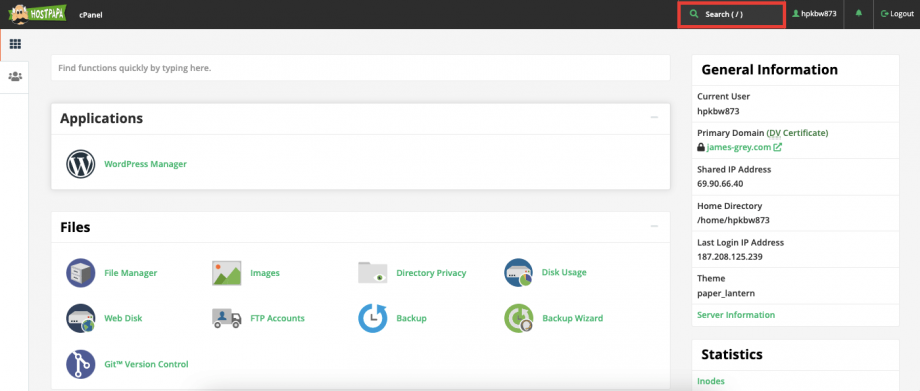
Regarding one-click integrations, HostGator supports over 75 open-source scripts, adding flexibility for various applications. HostPapa features a one-click website publishing tool through its Website Builder, which can be particularly useful for beginners. While both platforms deliver robust usability, HostGator’s extensive one-click application support might appeal more to experienced users, whereas HostPapa’s streamlined offerings cater slightly better to beginners and non-technical users.
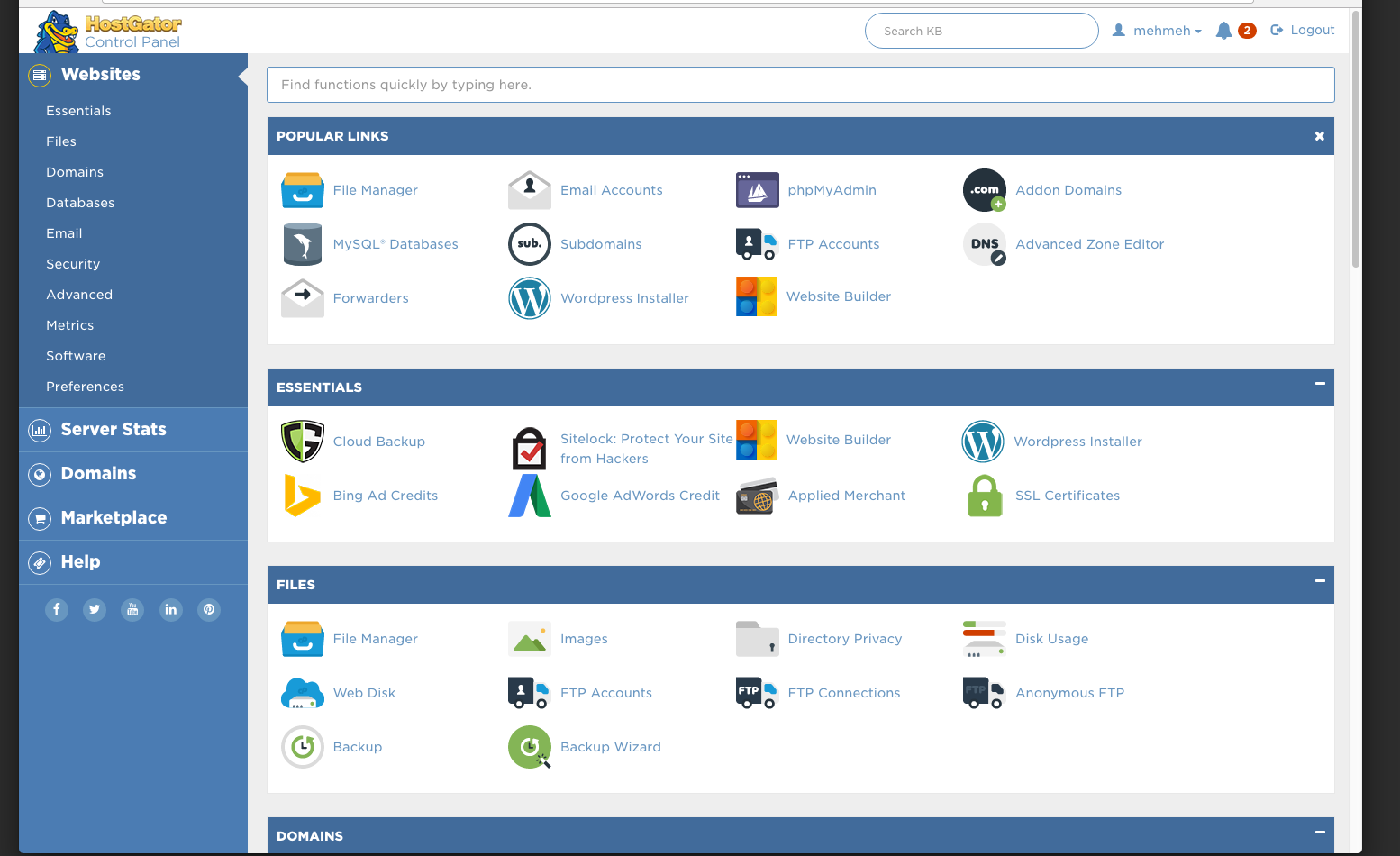
Both HostGator and HostPapa provide free site migration services, eliminating the hassle of transferring your site from another provider. HostGator’s migration service includes moving your website files, databases, scripts, and email accounts without incurring additional costs. HostPapa offers a similarly seamless migration experience, ensuring no downtime during the move. Both companies emphasize a user-friendly transition, but their offerings in this area are quite comparable.
HostGator’s help resources include a 24/7 support team available via phone, live chat, and Twitter, alongside an extensive KnowledgeBase, YouTube tutorials, a Facebook community, and regular webinars. HostPapa provides round-the-clock support in four languages, a vast array of knowledge base articles, video tutorials, and a unique offering of a one-on-one training session for select plans. Both have comprehensive help centers, but HostGator’s multiple support channels and educational videos via YouTube make it highly accessible to users seeking diverse support options.
User management
accessibility.
Score Components:
- Role customization (40%): Flexibility in creating and defining user roles and
permissions. - Ease of management (30%): User interface and tools for managing users.
- Access control (20%): Effectiveness of access control measures for different user
levels. - Scalability (10%): Ability to manage a growing number of users efficiently.
 7.8
7.8
 8.1
8.1
🏆 Winner HostPapa: Offers a comprehensive approach to managing user roles and permissions, providing users with significant flexibility and control.
HostGator and HostPapa both offer versatile user management systems, but they differ in several ways. HostGator provides three predefined user roles—Primary Contact, Administrative Contact, and Technical Contact—each with specific permission sets. This structure simplifies role assignment but lacks granular customization. HostPapa, utilizing Plesk, allows for creating custom user roles with a wide array of permissions to fine-tune user access levels, offering greater flexibility. Users can tailor roles to meet specific needs more precisely on HostPapa compared to the fixed roles in HostGator.
When examining the user interfaces and tools for managing users, HostGator’s Customer Portal is straightforward, focusing on clarity and ease of use. The process of adding or managing users involves intuitive steps with clear instructions. HostPapa’s Plesk is more comprehensive, albeit slightly more complex due to its extensive functionality. Plesk’s interface provides a holistic view of user management and roles, but it requires a steeper learning curve to navigate effectively compared to HostGator’s simpler approach.
In terms of access control and capability to manage a growing number of users, HostGator facilitates straightforward management with clear boundaries defined by user roles. However, its fixed roles might limit scalability for diverse organizational needs. HostPapa, with the ability to custom-create user roles and fine-tune permissions, scales better for organizations with varying and expanding user requirements. The flexibility provided by Plesk in HostPapa ensures users can be effectively managed as the organization grows, maintaining precise control over access levels and responsibilities.
HostGator user roles table:
| Role | Description | Access highlights |
|---|---|---|
| Primary Contact | Full authority to make changes to the account. | Edit account holder, payment information, user roles, purchase, manage, renew products, and edit WHOIS registrant/admin/tech users. |
| Administrative Contact | Ideal for administrative tasks on the account. | Edit payment info, add/edit/delete users, purchase, manage, renew products, edit WHOIS admin/tech users. |
| Technical Contact | Focused on product maintenance with restricted access. | Manage and renew products and services, edit WHOIS admin/tech users. |
HostPapa user roles table:
| Role | Description | Access highlights |
|---|---|---|
| Custom (e.g., Manage users) | Tailored for managing additional users and roles. | Ability to manage users and roles, create and manage sites, configure log rotation. |
| Custom (e.g., Create sites) | Focuses on site creation and specific hosting settings. | Create domains/subdomains, manage hosting settings, design sites in Presence Builder. |
| Custom (e.g., Antivirus) | Manages antivirus settings for mailboxes. | Configure antivirus and spam filter, create/manage mail accounts and mailing lists. |
| Custom (e.g., Databases) | Handles database management and related backup tasks. | Create/manage databases, backup/restore data, and export/import backup dumps. |
| Custom (e.g., Statistics) | Users who need access to statistics data. | View Plesk and web statistics, manage FTP accounts, DNS settings, and install/manage applications. |
Customer support
hosting provider.
Score Components:
- Support communication channels (30%): Measures the variety of customer support types
provided (live chat, chatbot, email, phone, etc.) - Availability (20%): Assesses the availability hours for each channel, including 24/7
support options. - Technical support quality (30%): Assesses whether the provider offers comprehensive
technical support, including hardware upgrades (e.g., HDD to SSD), software installations, and web
server configuration changes. - Enterprise support (20%): Checks if there are dedicated or priority support services
for enterprise-level customers.
 8.6
8.6
 8.8
8.8
🏆 Winner HostPapa: Offering extensive phone and email support, HostPapa stands out for its customer service and additional support features.
 |
 |
|
|---|---|---|
Phone support |
||
Live chat support |
||
Chatbot |
||
Email/ticket support |
||
Enterprise support (dedicated agent, priority support) |
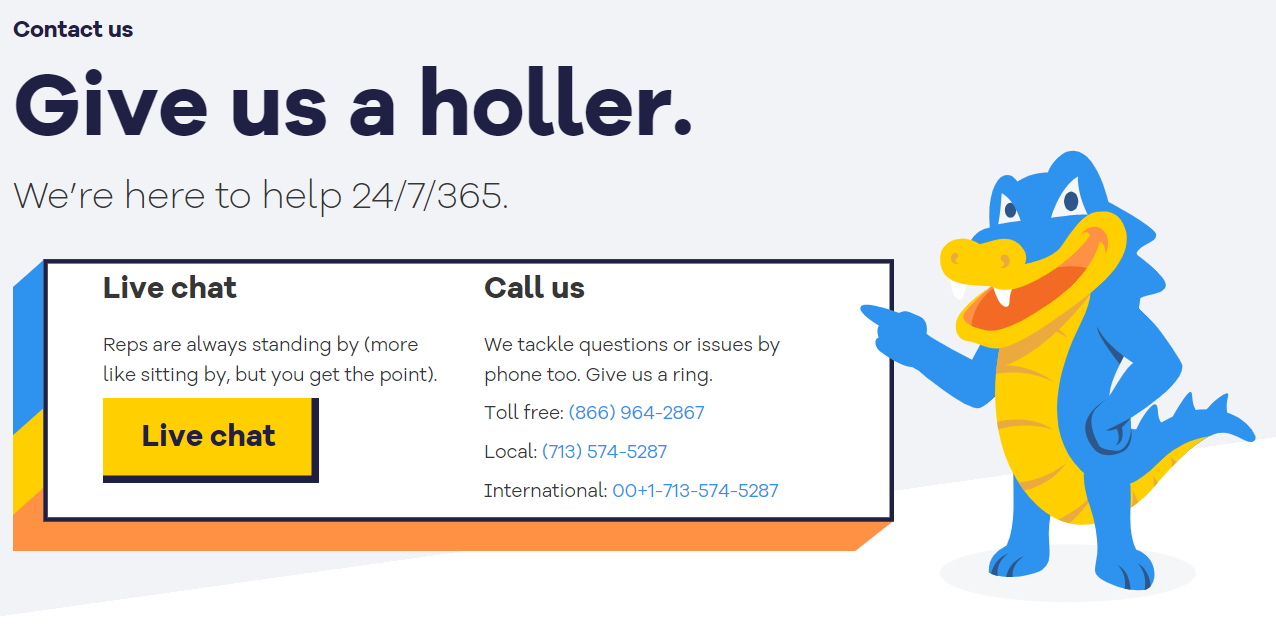
When it comes to customer support, both HostGator and HostPapa provide 24/7/365 assistance, but they cater to different needs and preferences. HostGator offers multiple contact methods including phone support, live chat, Twitter support, and a comprehensive knowledge base with additional resources like blogs, YouTube tutorials, Facebook community, and webinars. HostPapa also delivers strong support availability with various channels such as phone, email, live chat, and support tickets. Notably, HostPapa provides specific phone support numbers for numerous countries, ensuring easier accessibility for a global audience. Additionally, HostPapa offers one-on-one training sessions and network status checks, which can be highly beneficial for users needing personalized guidance.
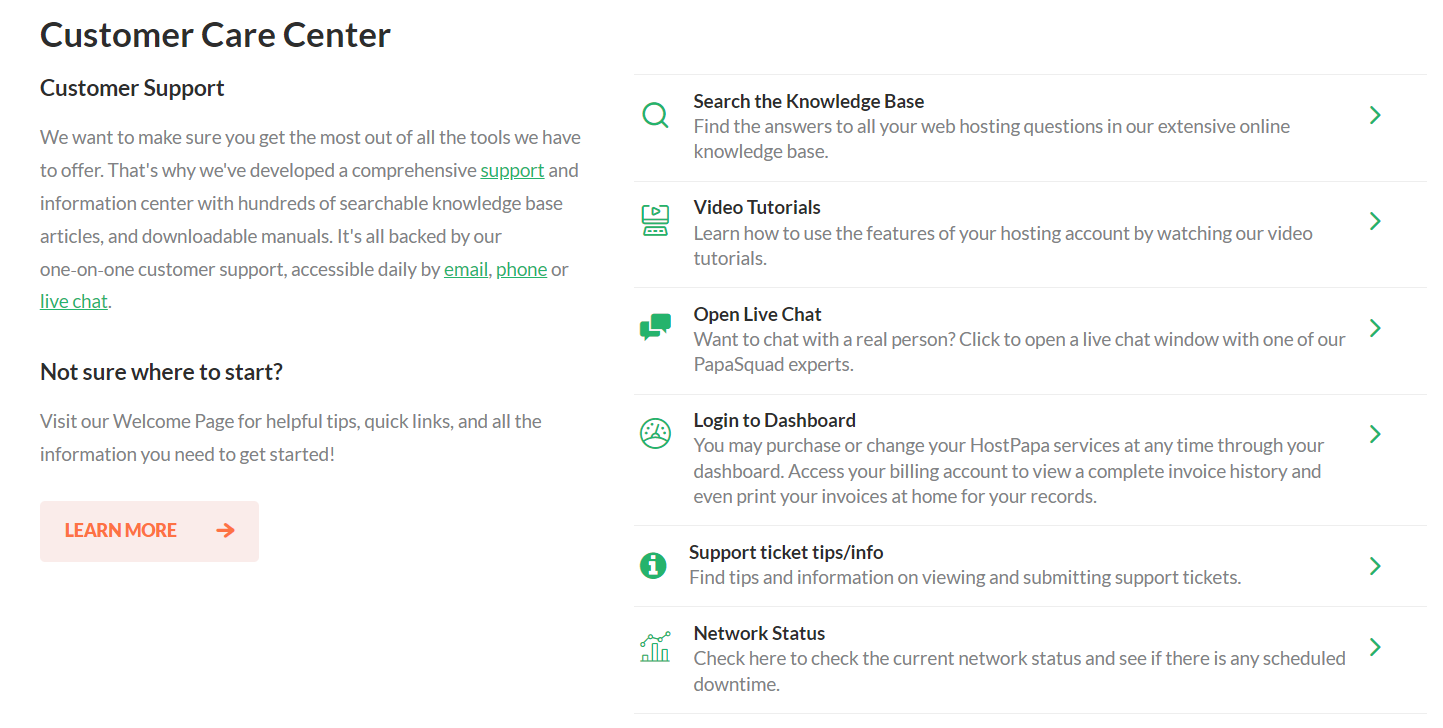
HostPapa has earned slightly higher ratings than HostGator, likely due to its additional features and the level of detailed assistance it offers. While both hosting providers have been recognized for their reliable servers and ease of use, the comprehensive support tools including phone support available in multiple countries and the unique one-on-one training sessions make HostPapa the preferred choice for users looking for enhanced customer service. HostGator, meanwhile, ably supports its customers through multiple modern communication channels and expansive educational resources.
Hostgator vs Hostpapa: User feedback
HostGator offers affordable, user-friendly web hosting services, which are appealing to both beginners and budget-conscious users. Key strengths include competitive pricing, reliable uptime, free SSL certificates, and efficient customer support. However, customers have reported issues such as slow server performance, aggressive upselling, rising renewal prices, and limited advanced features. While the overall experience can be positive, especially for small-scale or low-traffic sites, technical support responsiveness and server speed occasionally fall short, impacting the user experience.
Overall, customers generally appreciate the ease of use, responsive customer support, and affordability of the hosting provider. Many users specifically highlight the excellent technical support and straightforward interface as significant advantages. However, some reviews mention downsides such as occasional transparency issues with billing, aggressive upselling tactics, and sporadic performance concerns like downtime or slow website speeds due to outdated technology. There are also mixed experiences regarding customer service efficiency, with some users facing frustrating delays while others commend the quick and knowledgeable support team.
Hostgator vs Hostpapa: FAQ
Which platform is better suited for hosting WordPress websites?
Both HostGator and HostPapa are well-suited for hosting WordPress websites, offering features and optimizations specific to WordPress. HostPapa includes NVMe storage and a premium staging environment, while HostGator provides pre-installed WordPress and free SSL certificates. Ultimately, both platforms are effectively tied for WordPress hosting, making either a viable option depending on individual needs.
Are both platforms suitable for beginners?
Yes, both HostGator and HostPapa are suitable for beginners. HostGator offers a user-friendly cPanel interface and extensive customer support, making it easy for newcomers to manage their websites. HostPapa also provides a straightforward interface along with a 30-minute training session, which is particularly helpful for beginners unfamiliar with website creation.
What are the major differences in pricing and value between HostGator and HostPapa?
HostPapa generally offers more competitive pricing and better value compared to HostGator. HostPapa’s plans start at lower prices and include value-added features like unlimited email addresses and automated backups at no extra cost. In contrast, HostGator has higher starting prices and charges more for renewals, but also offers promotions and a free domain for the first year.
Which platform offers better customer support?
Both platforms offer strong customer support, but HostPapa has earned slightly higher ratings. HostPapa provides 24/7 support via phone, live chat, email, and even one-on-one training sessions. HostGator also offers 24/7 support through phone, live chat, and an extensive knowledge base, but HostPapa’s additional features and detailed assistance give it an edge.
Which hosting service offers more scalability options for growing websites?
Both HostGator and HostPapa offer scalable options, with HostGator providing a range of plans from shared to dedicated hosting. While detailed information about elastic scaling is not specified for either provider, HostPapa’s dedicated servers suggest room for significant growth. However, HostGator’s extensive range of hosting types, including VPS and dedicated hosting, potentially offers more flexibility for scaling.
How do the providers handle email hosting and what features are included?
Both HostGator and HostPapa offer unlimited email hosting, allowing users to set up multiple email accounts associated with their domain. HostPapa stands out with unlimited email addresses and additional perks like automated backups and training sessions. HostGator also provides robust email hosting, but without as many out-of-the-box features as HostPapa.
The making of this blog
We followed a clear, step-by-step process to write and research this article.









